Plan Your Own Green Death With This Progressive Funeral Parlor

The Vale of Rest by John Everett Millais, 1858. (Image: Public domain/WikiCommons)
One of the most ancient rituals of humans—and even of our prehistoric predecessors—is burying the dead. Millions of years ago, or even two centuries ago, it was commonplace for the family to dress the dead, at home, without preserving the body chemically. But now those practices are widely considered “alternative” and live in relative obscurity.
Enter Undertaking LA, a progressive new funeral home that seeks to change that.
Proprietors Caitlin Doughty and Amber Carvaly have set up shop in Los Angeles to take a “back to basics” approach to death and dying. You could say they’re putting the “home” back in funeral homes by offering options that return control of the dying process to those who are actually dying and care of the dead body to the family of the deceased. Their newly opened office is located in a medical building in East Hollywood, one of LA’s lowest income neighborhoods, and an ethnically diverse area that could benefit from their services.
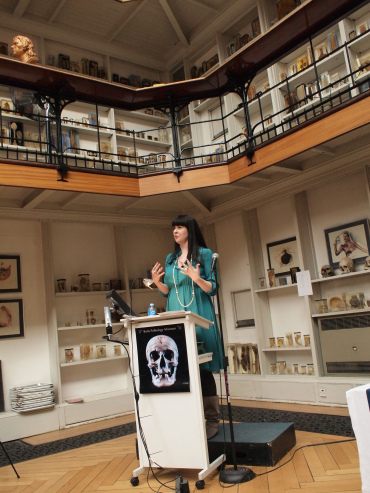
Caitlin Doughty. (Photo: Megan Rosenbloom)
“So many of our immigrants get caught up in the American funeral system and aren’t told that they have any other options,” says Doughty, Undertaking LA’s owner and a mortician who also authored the New York Times bestseller Smoke Gets In Your Eyes. (She also appears in our latest 100 Wonders video, talking about necropants.)
In fact, choices abound. For example, your body doesn’t have to be released to industry professionals unless foul play is suspected. You don’t need cosmetic embalming to look like you’re “just sleeping.” You can be buried in a pine box. You’re allowed to decompose naturally.
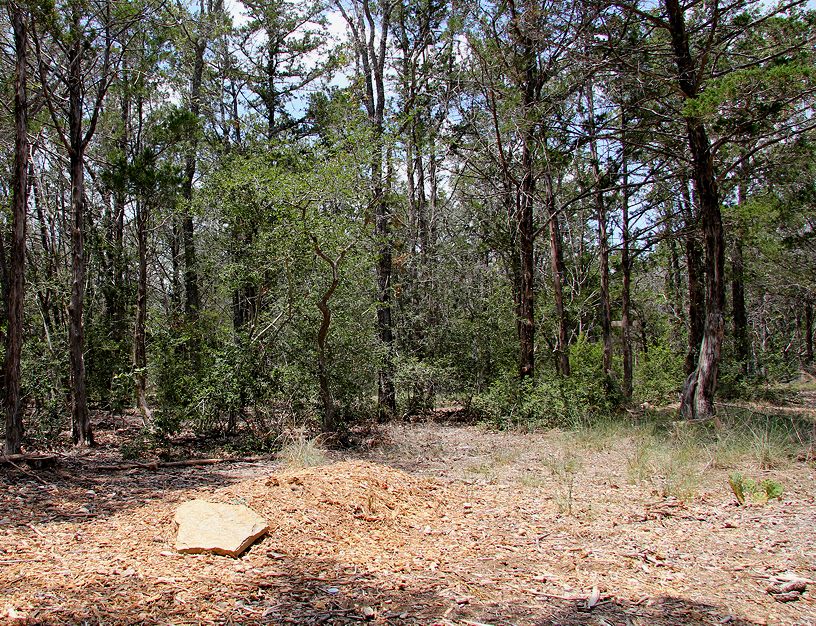
A grave at a natural burial ground in Cedar Creek, Texas. (Photo: Larry D. Moore on Wikipedia)
And there are ecological reasons to go with more natural burial practices—the conventional burial economy is taking away from American soil rather than adding to it. According to Cornell University’s Mary Woodsen (also of the Green Burial Council), every year in the U.S., over 800,000 gallons of toxic chemicals hitchhike their way underground in the veins of the preserved deceased.
By placing our dead in protective caskets and vaults, we bury over 30 million pounds of steel, copper, and bronze; and we pour nearly 3.3 billion pounds of concrete into the ground.
Anyone looking to reduce their negative impact on the environment can choose a “green burial,” which reduces carbon emissions, conserves natural resources, protects wildlife, and restores habitat. It uses no preservative chemicals, and it uses only biodegradable materials and hand-dug graves. To provide this natural alternative—which is legal in California and 40 other U.S. states—Undertaking LA has partnered with Joshua Tree Memorial Park, the closest non-denominational green burial option to LA. (Hillside Memorial, a Jewish cemetery, also permits traditional shroud burial without cement burial vaults in its “Gan Eden” green section.)

The Joshua Tree Memorial Park is situated adjacent to the National Park. (Image: Robb Hannawacker/Public domain)
Undertaking LA is not your typical funeral parlor. It has filed for non-profit status. Its natural options are actually more affordable than those of its peers in the traditional funeral industry. And its funeral directors make house calls.
However, Undertaking LA cannot yet offer some alternative services because of California state regulations. Doughty does have her eye on at least one of them: liquid cremation. Also known as aquamation, this process uses alkalinehydrolysis to dissolve the body in lye rather than burning it in an incinerator. It’s a kind of environmentally friendly “flash decomposition” that doesn’t give off greenhouse gasses and feels a bit gentler than cremation, but it’s only legal to use on human corpses in Australia and in eight U.S. states. It is, however, also used as a green alternative for pet cremation and tissue disposal in the U.S.
Many other alternatives are in the very early conceptual stages and haven’t even been thoroughly tested, much less legalized. The Seattle-based Urban Death Project (whose Board of Advisers includes Doughty) proposes composting dead bodies as a big city alternative to green burial, which requires a fair amount of wide-open space. Sweden’s “Promession” proposes freeze-drying the remains to be either kept or buried in a shallow grave, where they will quickly and organically become soil.
But what if your wishes aren’t legal at your time of death or in your area? If you really wanted to hold out for one of these green options to become legalized, your body could be preserved through long-term refrigeration, or it could be transported long distances to somewhere the practice is legal; but Doughty says that those aren’t the greenest, most natural choices, either.
So is anything off-limits? Is it “wrong” if you want your dead body to be eaten by vultures? Doughty says she doesn’t believe that disrespectful death exists, as long as the person finds meaning in the practice: “[People] shouldn’t have the right to dictate what someone else does with their bodies.”
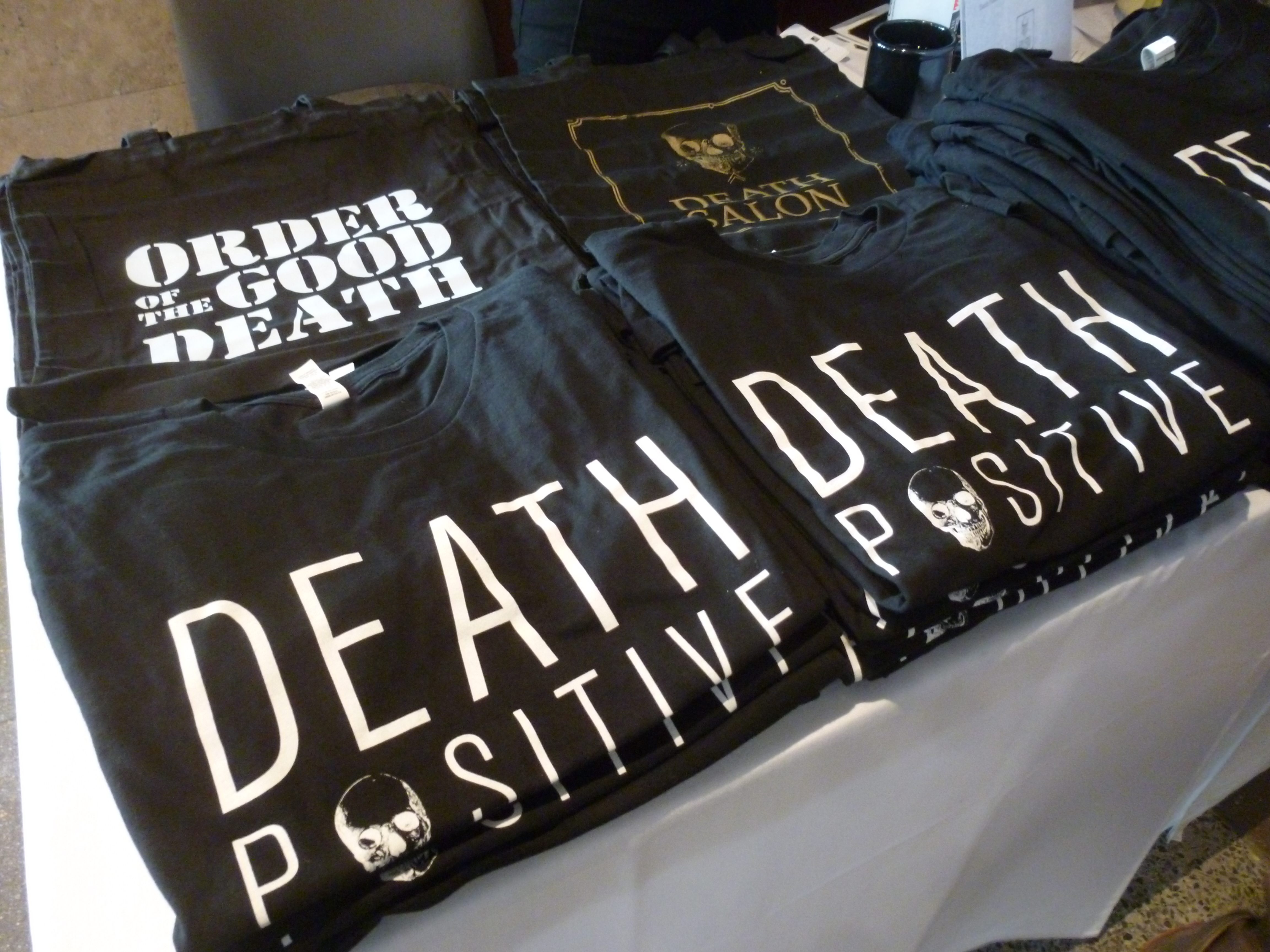
Death-positive t-shirts for sale at this year’s Death Salon at the Getty Villa, Los Angeles. (Photo: Avoiding Regret)
Those that follow Doughty and her other death-related ventures—which include The Order of the Good Death, Death Salon, and the “Ask a Mortician” series on YouTube—are learning how to accept their own mortality at a surprisingly young age. Book signings, lectures, and other events more commonly draw Millennials than they do retirees.
“It’s easier in its distance,” explains Doughty, 30, “but that distance also makes it easier to repress, deny, avoid.” It’s the equivalent of building a casket for the concept, and hiding it underground.

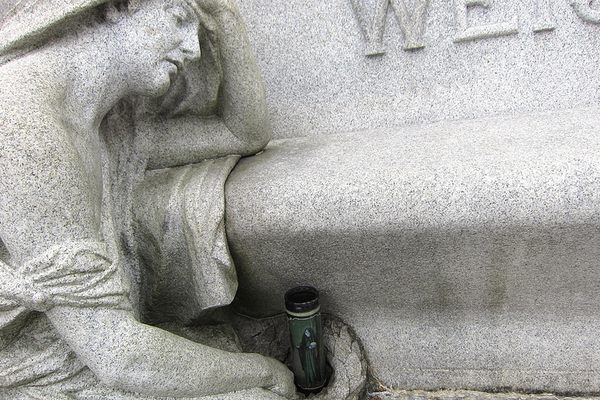








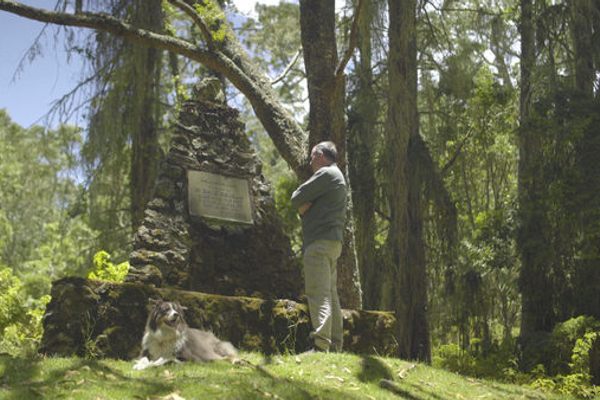


Follow us on Twitter to get the latest on the world's hidden wonders.
Like us on Facebook to get the latest on the world's hidden wonders.
Follow us on Twitter Like us on Facebook